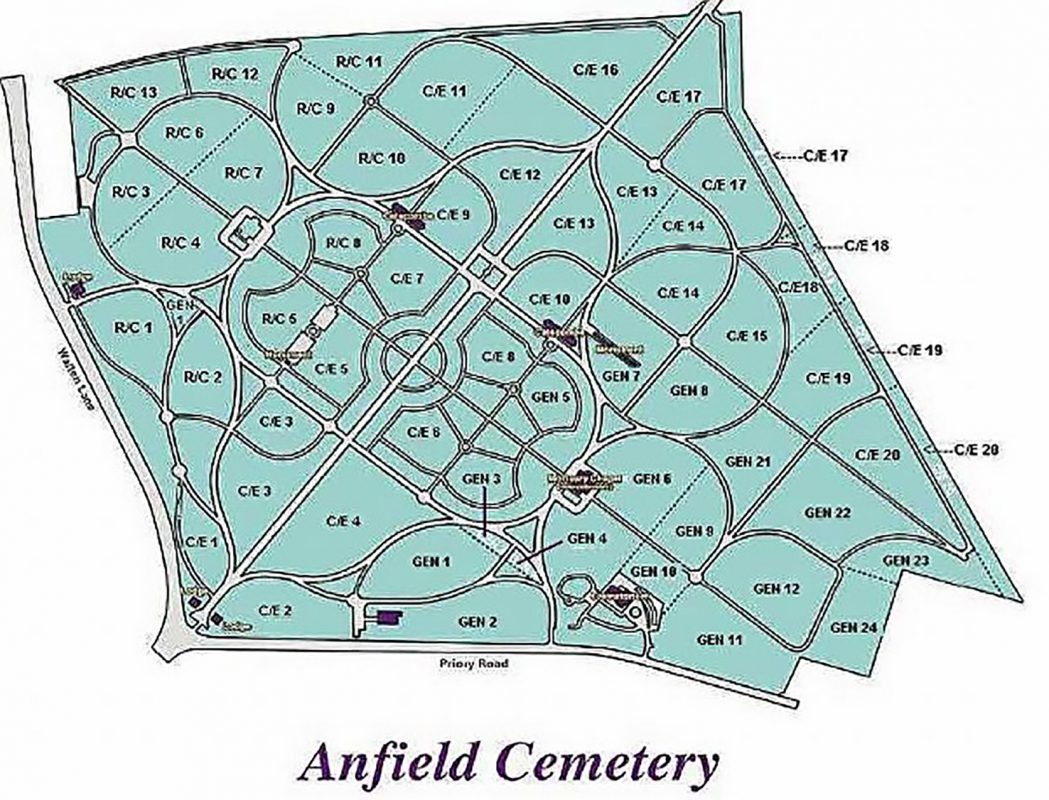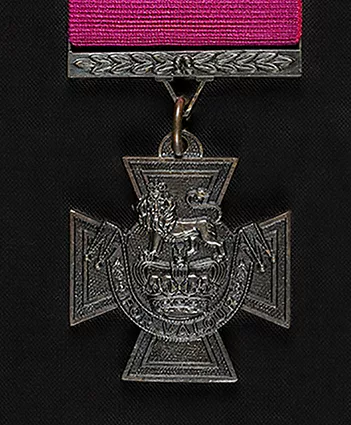Last month a few of our team members attended a wonderful memorial service at the Anfield Cemetary in Liverpool.
Forgotten Victoria Cross Heroes
On Friday 28th June 2019 at Anfield Cemetery, St Francis de Sales Catholic Primary School hosted the unveiling of 2 graves of Victoria Cross recipients William Patrick Mylott and Joseph Prosser.
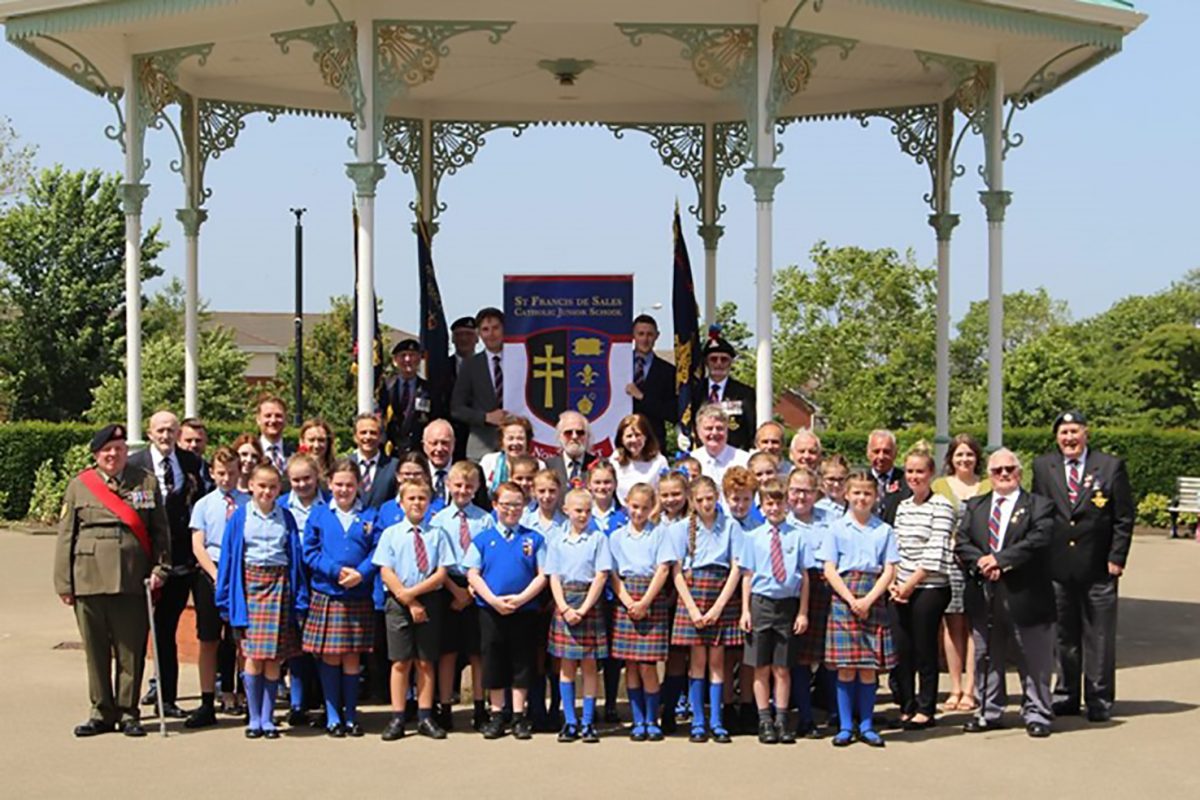
With the help of Friends of Anfield Cemetery, the school and children researched records to locate the actual graves of these two prestigious men, they then arranged for plaques to be laid on their actual graves. They located living descendants of the two soldiers to join them in a service of remembrance. This service was carried out and attended by some important dignitaries including, the Lord Mayor of Liverpool and the High Sheriff of Merseyside. Huyton with Roby and Liverpool RAF Association came along with their Standard Bearers to support the school. Together with a number of other guests and supporters of the Friends of Anfield Cemetary and Military associations.
The children spoke with great knowledge and passion and were a credit to their school, they unveiled the plaques which had been covered with Union Flags with Military dignity that was well deserved for the occasion. There was a laying of wreaths and flowers.
This was carried out at both grave sites and different groups of children took part in each service.
After the services everyone was then invited to share an afternoon tea at the Isla Gladstone, Stanley Park, Liverpool, I found this to be a very apt venue as it is a renovated Victorian Conservatory.
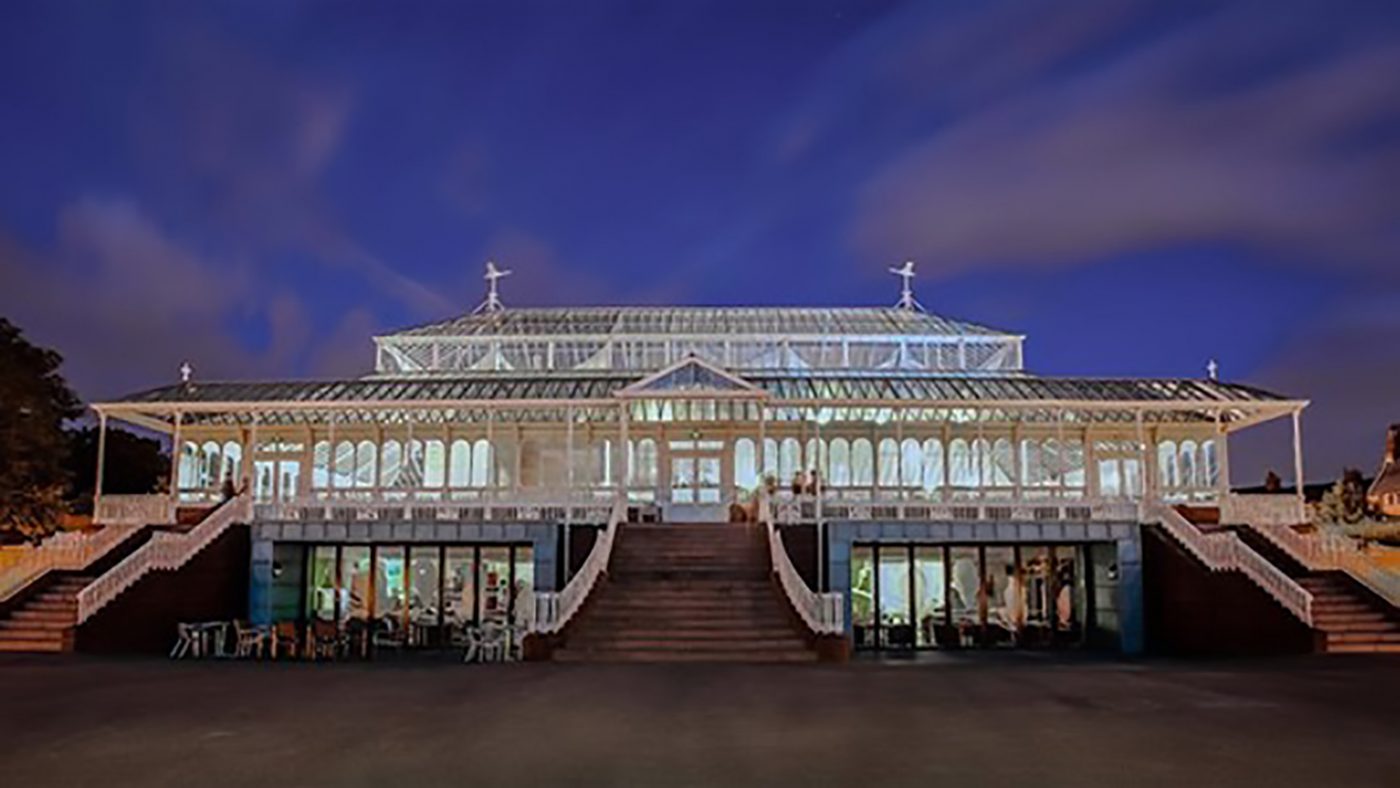
The school and staff should be extremely proud about the project and their pupils.
Private Joseph Prosser
Joseph Prosser was born in Moneygall, in County Offaly in Ireland. Little is known of his early life prior to joining the British Army. He married Catherine Riddle in St Paul’s Church in Cork and had 4 children, Ellen was born in Singapore (1860), Catherine Victoria (1863), Joseph William (1865) and Mary (1867 were all born in Liverpool.
Joseph joined the 1st Regiment of Foot (now known as the Royal Scots Regiment) just before the Crimean War,
At the end of 1854, Private Prosser along with the rest of his Battalion were posted to the Crimean Peninsula and before long were in the thick of the action in the trenches at Sebastopol.
On 16 June 1855 Private Prosser was on duty when one of the men decided to desert to the enemy and was running across open ground, Prosser gave chase under heavy crossfire caught the man and brought him back to safety.
Less than 2 months later Prosser left his advanced trench and found himself once again running into heavy fire to help someone, this time it was a severely wounded soldier of the 95th Regiment of Foot soldiers who was lying severely wounded and not able to move. Joseph Prosser went to help others carry him to safety, he leapt from a forward trench and once again under a hail of bullets.
It was to be another 18 months of hard fighting, together with disease and deprivation, before the soldier from the small southern Offaly town of Moneygall was to become its most famous citizen.
After Joseph Prosser returned from the Crimea, he was awarded the Victoria Cross on 24 February 1857, but he couldn’t go to the 1st Investiture of the Medal in Hyde Park on 26 Jun 1857 because he had been posted to Gibraltar.
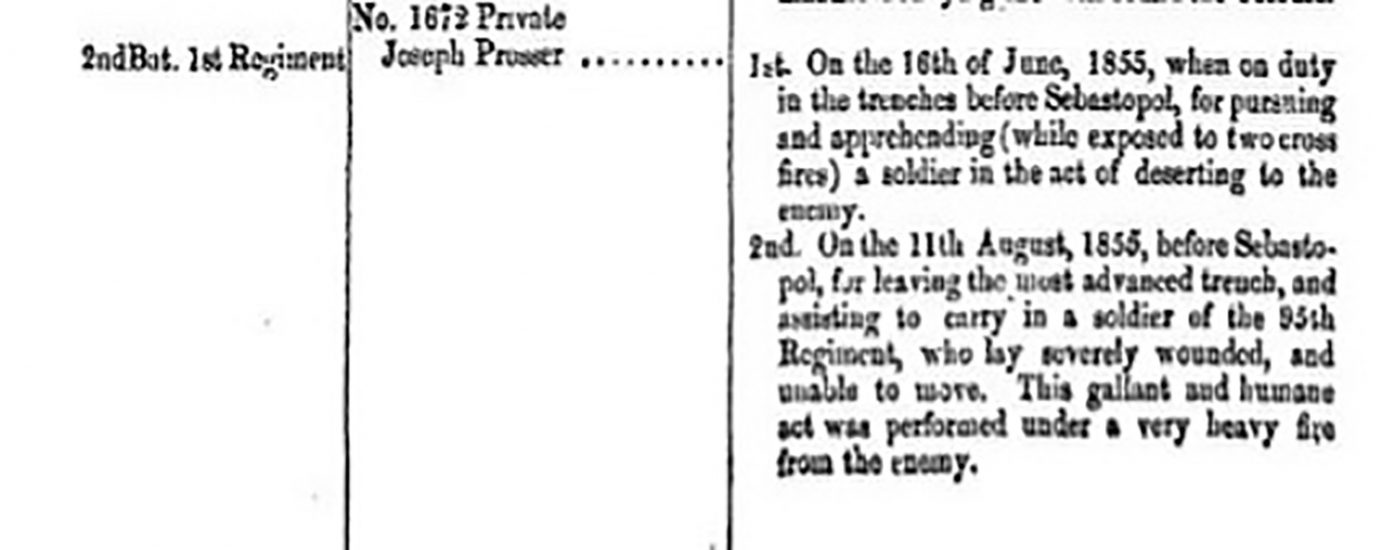
Private Prosser and 2 other people who had been awarded the Victoria Cross were presented with them in Gibraltar on 6 August 1857 by Lieutenant General Sir James Ferguson.
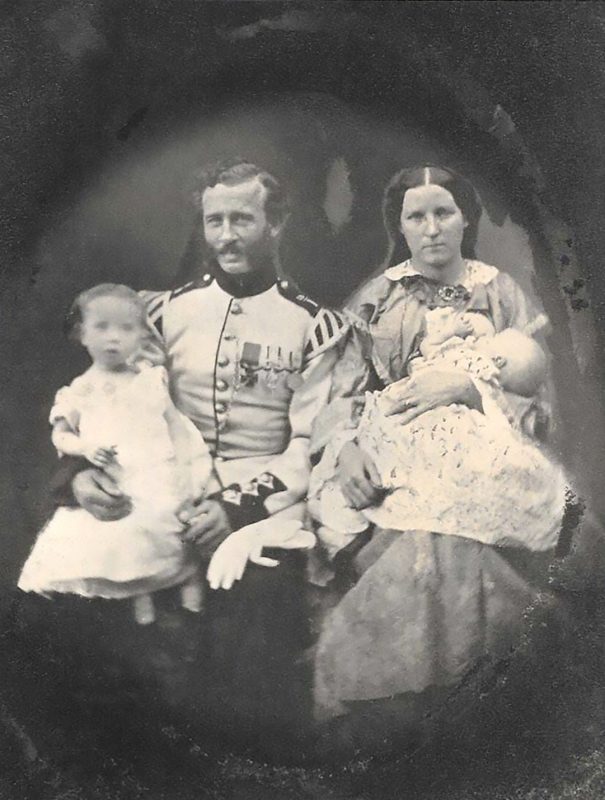
With his shy smile and impressive moustache, Joseph Prosser’s fading family image provides few clues to the high drama which would mark him out as a national hero.
Yet a solitary clue emerges in the four-pronged shape and dull grey colour of the medal that hangs on the left breast of his resplendent Royal Scots dress uniform.
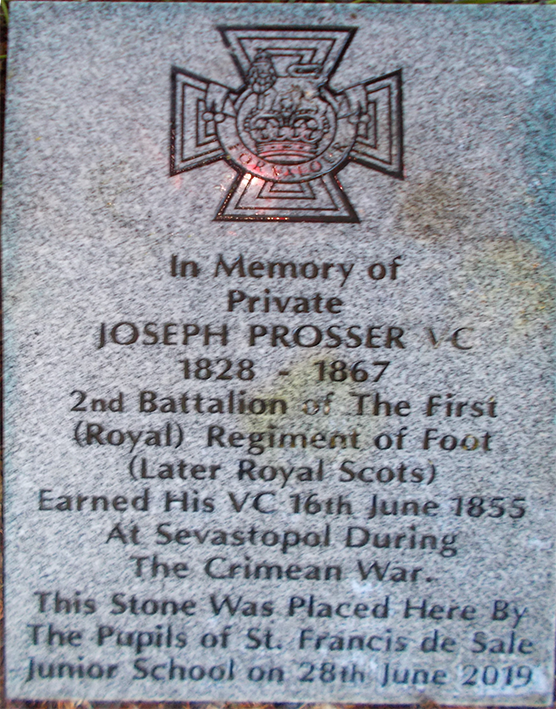
That highly recognisable chunk of bronze is Britain’s ultimate award ‘For Valour’, the Victoria Cross, which the young Irishman received for two displays of near-reckless courage in the face of the enemy.
Not long after this Joseph Prosser retired from the Army and found himself living in Liverpool. He died 10th June 1867 in Birchfield Street, Liverpool and was buried in a Public Grave (CE Section 14 Grave No. 589).

His heroic legacy did not, however, die with him: in 1995, his grave was renovated with a new headstone and his VC and campaign medals are now on display in the Royal Scots Regimental Museum in Edinburgh Castle.
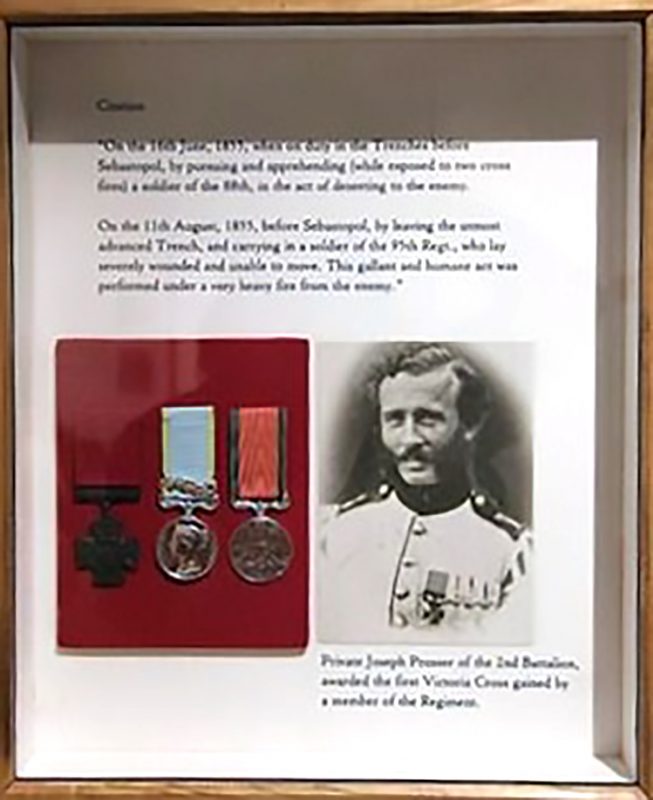
It is in Edinburgh that the Irishman, who had been driven by the Famine and poverty to leave his homeland and join the British Army, was honoured once again in a ceremony on 11 March 2019 at The Royal Scots Club in Edinburgh.

Prosser and the seven other VC winners (the rest are Scottish and English) will be commemorated by the unveiling of eight specially designed entrance stones in Edinburgh bearing their names and key details.
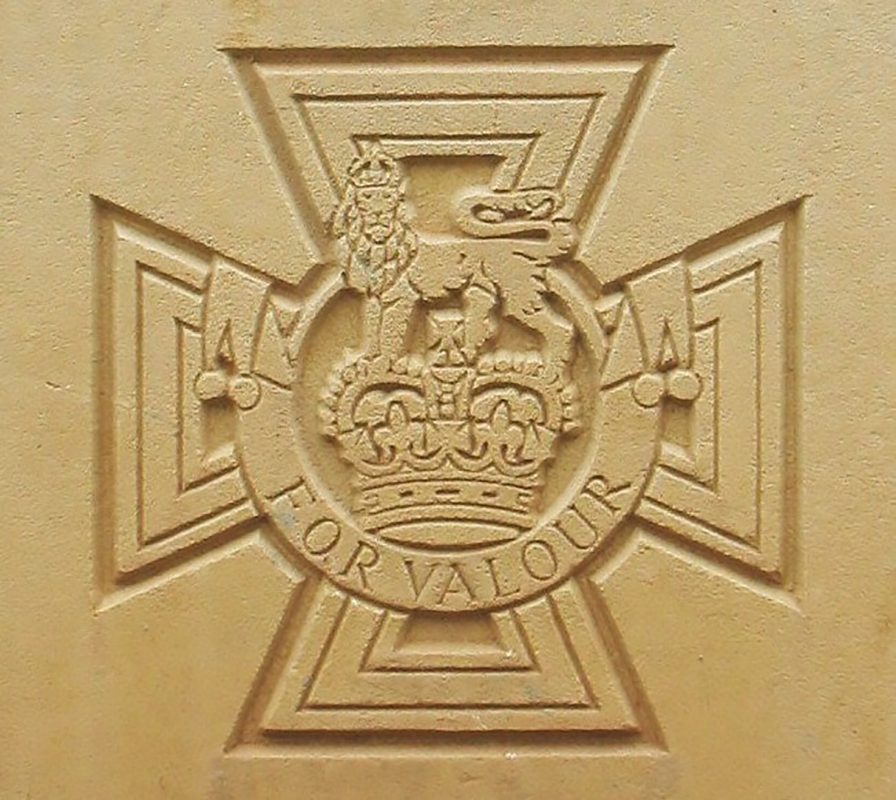
It will be a moment to savour for Moneygall, which, a decade ago, celebrated another famous ‘son’, Falmouth (Falmuth) Kearney, the great-great-great grandfather of former US President Barack Obama.
Private Prosser was one of the first recipients of the then relatively new Victoria Cross award, which was introduced by Queen Victoria on 29 January 1856 to honour acts of valour ‘in the presence of the enemy’ during the Crimean War.
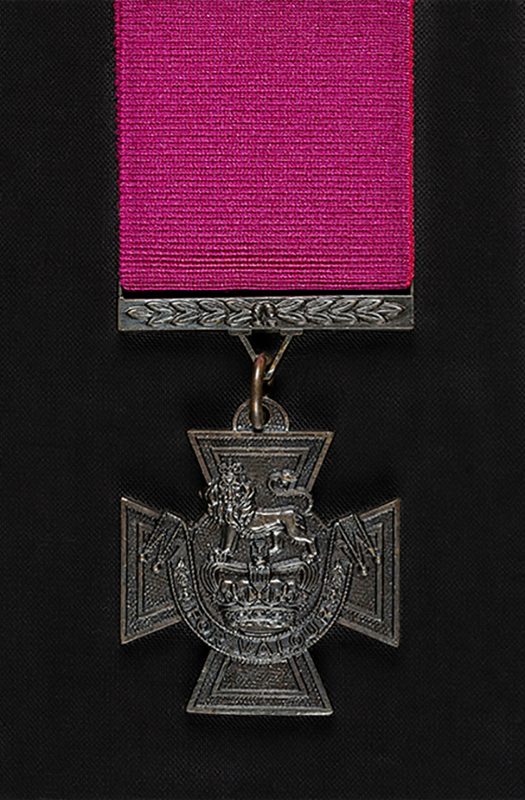
Sergeant William Patrick Mylott
Patrick Mylott was born on 1 January 1820 in Hollymount, Claremorris, County Mayo, Ireland, he joined the 84th Regiment of Foot (now known as the 2nd Battalion York and Lancaster Regiment). He served in India before the Mutiny in Meerut in 1857.
Patrick served through the Mutiny and helped alongside his Regiment with the struggle to secure the relief of the Residency of Lucknow.
On 12th July 1857 during the Indian Mutiny, he was with his Regiment trying to take an enemy enclosure when he rushed across the road through a shower of musket balls to take it and up to 25th September 1857 he showed conspicuous gallantry at every encounter he went on with his unit.
Patrick was elected by his Regiment to receive his medal.

During his Military career he eventually reached the rank of Sergeant.
William Patrick Mylott died in Liverpool on 22 December 1878 in the Workhouse and is buried in a Public Grave (RC Section 2 Grave No. 1743).

His medals are not held publicly.
Headstones
There are 2 headstones near the chapel where people have been honouring these prestigious Victoria Cross recipients for 25 years, but it would be really fantastic after the effort of the children and staff of St Francis de Sales Catholic Primary School, Friends of Anfield and the descendants of Private Joseph Prosser and Sergeant William Patrick Mylott that people can now honour their actual graves.
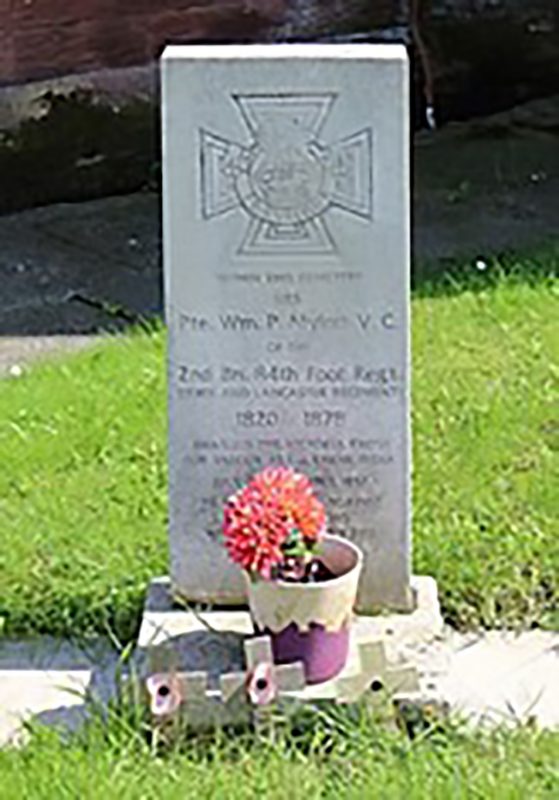
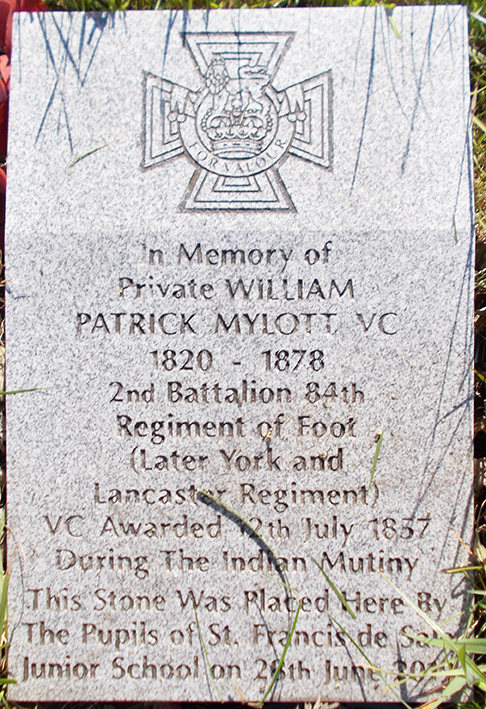
The distinctive crosses were said to be struck originally from the bronze of Russian cannon captured during the siege of Sevastapol (recent research suggests that the bronze actually came from a Chinese Cannon), the long and bitter conflict in which Prosser undertook the two acts of heroism recorded in his medal citation.
